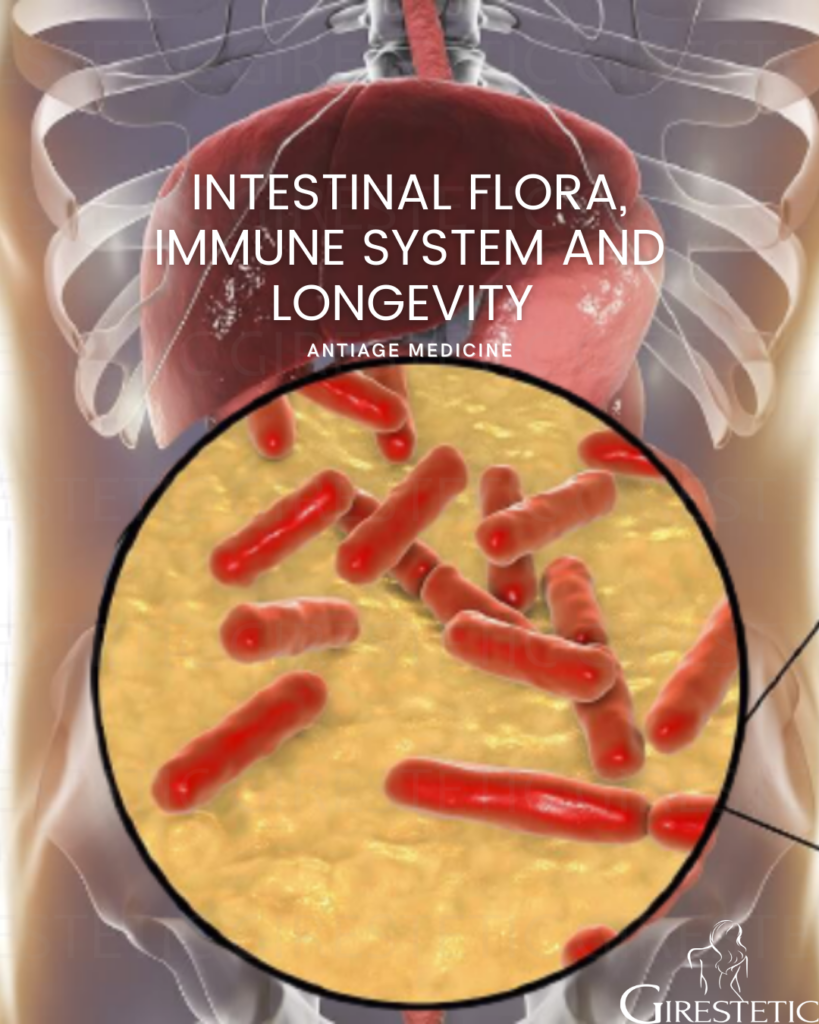
Intestinal health is of very importance because we process nutrients there, it also houses 60% of our defense system (Peyer’s patches) and it is the natural habitat of a group of essential, friendly and beneficial bacteria that when they are healthy and in equilibrium they perform multiple tasks such as:
• Absorption of nutrients.
• Detoxification and elimination of waste and toxins.
• Production of satatogenic peptides (appetite suppressants) that send their signal to the brain to stop feeling hungry.
• Synthesis of neurotransmitters (serotonin, related to the feeling of happiness).
• They favor the production of some vitamins such as B complex, Folic acid and Vitamin K2.
• They are involved in the detoxification of some drugs.
• They protect the intestinal mucosa.
• They help in the avoidance of infections.
What should we do to maintain a healthy intestinal flora?
• Consume probiotics through foods such as enriched yogurt, sauerkraut.
• Vegetables of all colors: red, yellow, green, orange, white (turnip, mushrooms), black / purple, (Blueberries, olives)
• Healthy vegetable fats (coconut and olive oil) avocado
• Seeds (flaxseed, chia)
• Turmeric,
• Garlic, onion, kion or ginger
• Fresh herbs in infusions (chamomile, mint, oregano).
What destroys friendly bacteria in the stomach?
• Diets high in sugars that favor the growth of fungi such as candida albicans.
• Diets high in refined foods and processed foods that block the absorption of Vit A, E, D and many minerals.
• Diets low in vegetable fiber.
• Stress.
• High doses of antibiotics.
• Corticosteroids.
Therefore, a balanced intestinal flora ensures a long and healthy life, and must be taken care of daily through healthy food choices.